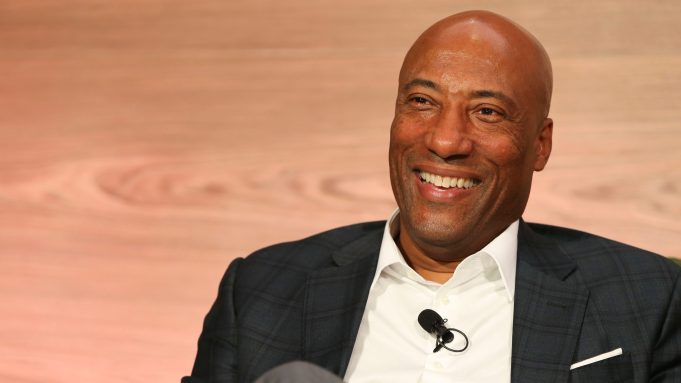When Byron Allen first launched a legal rampage back in 2015, few would have guessed he would get to the Supreme Court with a case that could transform the way discrimination lawsuits are handled and represents a coda on 19th century Reconstruction efforts after the Civil War.
Once known as the entrepreneur who debuted as a stand-up comedian on The Tonight Show as a teenager, Allen, 58, sued cable operators and satellite distributors after they refused to license his small channels devoted to topics including criminal justice, cars and pets. He hired an attorney who defended the city of Los Angeles in the Rodney King beating case and demanded tens of billions of dollars via allegations of a racial bias conspiracy against Comcast, DirecTV, Charter and others.
Just how out there was Allen’s lawsuit? The NAACP and Al Sharpton were originally co-defendants in the case for allegedly taking actions to “whitewash” Comcast’s discriminatory business practices. As the story was told in the suit, when Comcast sought regulatory approval for its 2010 bid to acquire NBCUniversal, it looked to gather support. To calm any fears that the merger would have a detrimental impact on diversity, Comcast made voluntary commitments and came to memoranda of understanding with various civil rights groups like the NAACP, National Urban League and Sharpton’s National Action Network. But Allen took issue with those so-called “sham” agreements, questioning the monetary donations that Comcast had made to these groups and further challenging how Comcast was spending $25 billion annually on channel licensing, but less than $3 million on what he characterized as “100% African American-owned media.”




